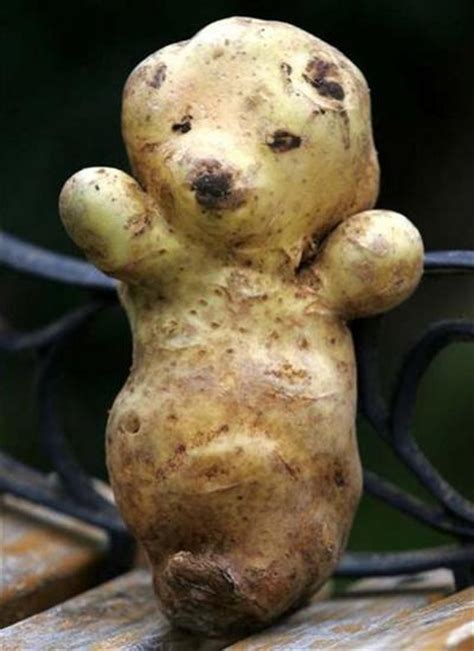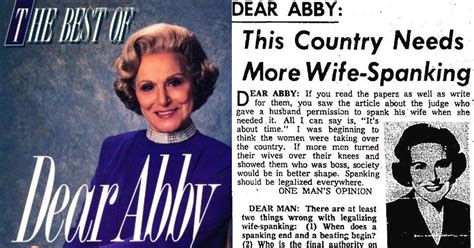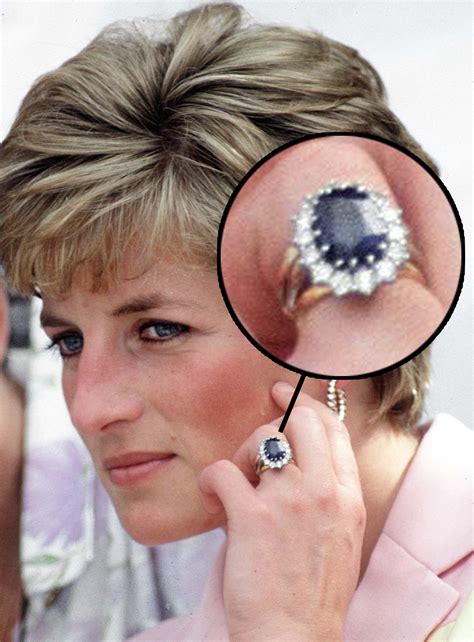
A miniature French Bulldog, affectionately nicknamed “Potato,” is capturing hearts online with its diminutive size and charming appearance, often sporting pink hair bows.
A tiny French Bulldog puppy is melting hearts across the internet with its adorably small stature and endearing nickname, “Potato.” The petite pup, frequently adorned with pink hair bows, has garnered significant attention on social media, captivating users with its resemblance to a cuddly potato. The puppy’s popularity highlights the ongoing fascination with small-breed dogs and the viral appeal of charming animal content.
Potato, owned by a loving family who chronicles her daily life on various social media platforms, weighs significantly less than the average French Bulldog puppy of her age, contributing to her distinctive “potato-like” appearance. Her owners regularly post photos and videos showcasing Potato’s playful antics, fashionable accessories, and affectionate interactions, amassing a considerable following of admirers.
The internet’s response to Potato has been overwhelmingly positive, with users expressing delight in her unique look and expressing admiration for her owners’ care. Comments frequently describe Potato as “adorable,” “precious,” and “the cutest thing ever.” The puppy’s popularity underscores the appeal of relatable and heartwarming content in the digital age, as well as the power of social media in amplifying animal stories.
Beyond her viral fame, Potato’s story also sheds light on the responsibilities and considerations involved in owning small-breed dogs. Potential owners should be aware of the specific health concerns and care requirements often associated with miniature breeds, ensuring that these animals receive the proper attention and support they need to thrive.
The emergence of pets as social media stars isn’t new, yet the frenzy surrounding Potato underscores a broader trend in online culture: the celebration of innocence, vulnerability, and pure joy embodied by animals. As Potato continues to capture hearts and spread smiles, her story serves as a reminder of the simple pleasures found in the companionship of animals and the unifying power of social media in bringing people together through shared appreciation.
Potato, the internet’s newest canine celebrity, continues to charm audiences worldwide with her diminutive size and undeniable cuteness. Her presence serves as a reminder of the joy and companionship that animals bring, and the powerful role of social media in celebrating these connections.
Further Details and Context
The rise of “Potato” as an internet sensation is rooted in several converging trends. Firstly, there’s the undeniable appeal of small-breed dogs, particularly French Bulldogs, which have steadily climbed in popularity over the past decade. Their playful nature, adaptability to apartment living, and distinctive appearance make them highly desirable companions for many pet owners. Potato’s miniature size, however, sets her apart, amplifying her “cute factor” and drawing attention to her unique features.
Secondly, the prevalence of social media as a platform for sharing pet-related content has played a crucial role in Potato’s viral success. Platforms like Instagram, TikTok, and Facebook provide avenues for pet owners to showcase their animals’ personalities, antics, and even fashion sense, as is the case with Potato’s pink hair bows. These platforms also foster communities of pet lovers who actively seek out and engage with heartwarming content, creating a cycle of sharing and amplification.
Thirdly, there’s a psychological aspect to Potato’s appeal. In an often-turbulent world, the innocence and unconditional love offered by animals provide a source of comfort and joy. Seeing a small, vulnerable creature thriving and being cared for can evoke positive emotions and offer a sense of connection. The nickname “Potato” itself adds to the appeal, conjuring images of small, round, and comforting objects, further enhancing the puppy’s endearing qualities.
Health Considerations and Responsible Ownership
While Potato’s story is undeniably charming, it’s essential to address the potential health considerations associated with miniature breeds and responsible pet ownership. Breeding practices aimed at producing extremely small dogs can sometimes lead to health problems, including respiratory issues, skeletal abnormalities, and increased vulnerability to injury.
Prospective owners should thoroughly research the breed and choose reputable breeders who prioritize the health and well-being of their animals. Regular veterinary checkups, a balanced diet, and appropriate exercise are crucial for maintaining the health of small-breed dogs. Additionally, owners should be prepared to provide extra care and attention to ensure their pets’ safety and comfort.
The American Kennel Club (AKC), while acknowledging the popularity of French Bulldogs, emphasizes the importance of responsible breeding practices to avoid perpetuating health issues. The AKC recommends that prospective owners carefully screen breeders, inquire about health certifications for the parents, and be wary of breeders who consistently produce extremely small or “teacup” versions of the breed.
“Responsible breeders prioritize the health and temperament of their dogs,” says an AKC spokesperson. “They conduct health testing to screen for genetic conditions and provide proper care and socialization for their puppies.”
Ethical Concerns and the Demand for Miniature Breeds
The rising demand for miniature breeds also raises ethical concerns about breeding practices. In some cases, breeders may resort to unethical methods, such as inbreeding or selecting for extreme physical traits, to achieve the desired size or appearance. These practices can have detrimental effects on the animals’ health and welfare.
Animal welfare organizations advocate for responsible breeding practices that prioritize the health and well-being of animals over purely aesthetic considerations. They encourage prospective owners to adopt from shelters or rescue organizations whenever possible and to carefully research breeders before purchasing a puppy.
The Humane Society of the United States (HSUS) urges consumers to be aware of the potential risks associated with purchasing miniature breeds from unscrupulous breeders. “Consumers should be cautious of breeders who market their dogs as ‘teacup’ or ‘miniature’ and who offer guarantees of extremely small size,” says an HSUS representative. “These breeders may be prioritizing profit over the health and welfare of their animals.”
The Power of Social Media in Shaping Perceptions
Social media has undoubtedly played a significant role in shaping perceptions of dog breeds and influencing consumer demand. Viral videos and images of adorable puppies can create a strong desire for these animals, often without fully considering the responsibilities and potential challenges of pet ownership.
While social media can be a powerful tool for promoting responsible pet ownership and raising awareness about animal welfare issues, it can also contribute to the perpetuation of unrealistic expectations and the exploitation of animals for entertainment purposes. It’s essential for consumers to be critical of the content they consume online and to seek out reliable information from reputable sources before making decisions about pet ownership.
Dr. Karen Becker, a veterinarian and advocate for natural pet care, cautions against relying solely on social media for information about dog breeds and pet care. “Social media can be a great source of inspiration and connection, but it’s important to remember that not everything you see online is accurate or reliable,” says Dr. Becker. “Always consult with a veterinarian or other qualified professional for personalized advice about your pet’s health and well-being.”
The Broader Trend of Anthropomorphism
The phenomenon of attributing human characteristics and emotions to animals, known as anthropomorphism, is another factor contributing to the popularity of pets on social media. By dressing up their pets, giving them human-like nicknames, and portraying them in humorous situations, owners create relatable and engaging content that resonates with audiences.
While anthropomorphism can be harmless and even endearing, it’s essential to recognize the limitations of projecting human emotions onto animals. Animals have their own unique needs, behaviors, and communication styles, and it’s important to respect their individuality and avoid imposing human expectations on them.
“It’s natural to form strong bonds with our pets and to see them as members of our families,” says Dr. Stanley Coren, a psychology professor and author of several books on dog behavior. “However, it’s important to remember that dogs are not furry humans. They have their own unique ways of thinking and experiencing the world.”
The Enduring Appeal of Animal Companionship
Despite the potential pitfalls and ethical considerations, the enduring appeal of animal companionship remains undeniable. Pets provide companionship, reduce stress, and offer unconditional love, enriching the lives of their owners in countless ways.
As Potato continues to capture hearts online, her story serves as a reminder of the simple pleasures found in the companionship of animals and the unifying power of social media in bringing people together through shared appreciation. However, it’s essential to approach pet ownership with responsibility, awareness, and a commitment to the well-being of our animal companions.
The fascination with Potato also highlights the importance of supporting ethical breeding practices, promoting responsible pet ownership, and recognizing the potential impact of social media on perceptions of animal breeds. By approaching these issues with critical thinking and compassion, we can ensure that the well-being of animals is prioritized and that the joys of animal companionship are shared responsibly.
Potato’s story also reminds us that animals are not merely objects of entertainment or social media fodder, but sentient beings deserving of respect, care, and love. As we celebrate their presence in our lives, it’s crucial to remember our responsibility to protect their welfare and advocate for their rights.
The Economic Impact of Pet Influencers
The popularity of pets like Potato extends beyond mere entertainment; it has significant economic implications. Pet influencers can command substantial fees for endorsements, collaborations, and sponsored content. This burgeoning market has created opportunities for pet owners to monetize their animals’ online presence and partner with brands in the pet industry.
However, the commercialization of pets also raises ethical questions about the exploitation of animals for profit. Critics argue that some pet influencers may prioritize financial gain over the well-being of their animals, potentially subjecting them to uncomfortable or stressful situations for the sake of content creation.
It is critical for pet influencers to prioritize the welfare of their animals, ensuring that they are not subjected to any harm or distress in the pursuit of online fame and financial rewards. Transparency with their audience about sponsored content and ethical sourcing of products is also essential for maintaining trust and credibility.
The Future of Pet Content on Social Media
As social media platforms continue to evolve, the future of pet content is likely to be shaped by emerging technologies such as artificial intelligence (AI) and virtual reality (VR). AI-powered tools could be used to generate personalized pet content, create interactive experiences, and even provide virtual companionship. VR technology could allow users to interact with virtual pets in immersive environments, blurring the lines between the real and digital worlds.
However, it is important to consider the potential implications of these technologies for animal welfare. Virtual pets should not replace real-life companionship, and AI-generated content should not perpetuate unrealistic or harmful stereotypes about animals.
The key to the future of pet content on social media is to strike a balance between innovation and responsibility, ensuring that the well-being of animals is always prioritized. By embracing ethical practices and fostering a culture of respect for animals, we can create a digital landscape that celebrates the joys of animal companionship without compromising their welfare.
The Enduring Legacy of Animal Stories
From ancient folklore to modern-day social media, animal stories have always held a special place in human culture. They provide us with entertainment, inspiration, and valuable insights into the natural world.
Potato’s story is just one example of the enduring legacy of animal stories. Her charm and vulnerability have captured the hearts of millions, reminding us of the simple joys of animal companionship and the importance of protecting the welfare of all creatures.
As we continue to share and celebrate animal stories, let us do so with responsibility, awareness, and a deep appreciation for the unique gifts that animals bring to our lives. Let Potato’s story not only bring a smile, but also inspire us to be better pet owners and better stewards of the planet.
Frequently Asked Questions (FAQ)
1. What is the origin of the nickname “Potato” for this French Bulldog?
The nickname “Potato” is attributed to the French Bulldog’s small size and round appearance, resembling a small potato.
2. What is contributing to Potato’s popularity online?
Several factors contribute to Potato’s popularity, including the general appeal of small-breed dogs (particularly French Bulldogs), the consistent sharing of heartwarming content on social media platforms, and the positive emotional response evoked by her endearing appearance and playful behavior.
3. Are there potential health concerns associated with miniature French Bulldogs like Potato?
Yes, breeding practices that produce extremely small dogs can sometimes lead to health problems, including respiratory issues, skeletal abnormalities, and increased vulnerability to injury. Responsible breeders prioritize health testing and avoid breeding dogs with known genetic conditions.
4. What ethical considerations should prospective owners be aware of when considering purchasing a miniature breed?
Prospective owners should be aware of unethical breeding practices that may prioritize aesthetic traits over the health and welfare of the animals. It is crucial to research breeders carefully, inquire about health certifications, and be wary of breeders who market dogs as “teacup” or “miniature” with guarantees of extremely small size. Animal welfare organizations recommend adopting from shelters or rescues whenever possible.
5. How does social media influence perceptions of dog breeds and responsible pet ownership?
Social media can influence consumer demand for certain breeds, often without fully considering the responsibilities and challenges of pet ownership. While social media can be a powerful tool for promoting responsible pet ownership, it can also contribute to unrealistic expectations and the exploitation of animals. It is important to be critical of online content and seek reliable information from reputable sources before making decisions about pet ownership.









